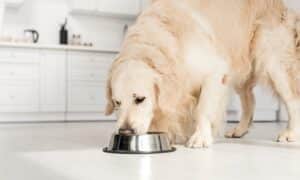“This post contains affiliate links, and I will be compensated if you make a purchase after clicking on my links.”

Cheese is high in nutrients such as calcium, protein, phosphorus, zinc, and vitamins A and B12. However, is what’s safe for humans also safe for dogs?
Can dogs consume cheese? Yes, a lot of dogs can.
While cheese is not poisonous to dogs, they lack the digestive enzyme lactase, which means they are lactose intolerant from birth. And being lactose-intolerant can cause flatulence, discomfort, diarrhea, or vomiting.
Cheese is normally fine to serve to your dog as an occasional treat, and as long as you avoid fatty cheeses. Cheese includes significant levels of saturated fat and sodium, in addition to issues with lactose intolerance. This can make your dog obese if they consume it frequently over an extended period of time. If a dog is sensitive to fat, it may even develop pancreatitis the first time they consume cheese.
Give your dog a small quantity of cheese or any other dairy food, including milk, to see how their body responds before feeding them more. Pet owners should generally choose cheeses that are low in fat, sodium, and calories, and they should always be aware of any additional ingredients that can be harmful to their dogs.
Not every type of cheese is the same. Compared to cheeses with greater fat content, low-fat cheeses like mozzarella, cottage cheese, and soft goat cheese may be better for your dog. When looking for dog-friendly cheeses, be careful to pay special attention to the ingredients. Some cheeses contain herbs and vegetables that might be poisonous to dogs, including chives or garlic.
If you decide to give your dog cheese as a special treat during training or to hide medications, make sure the servings are small and infrequent. Only 10% of your dog’s diet should consist of treats of any kind. A well-balanced dog food should provide the remaining 90%.
And as always, before giving cheese to your dog, always visit your veterinarian to decide the best type and serving quantity.





















